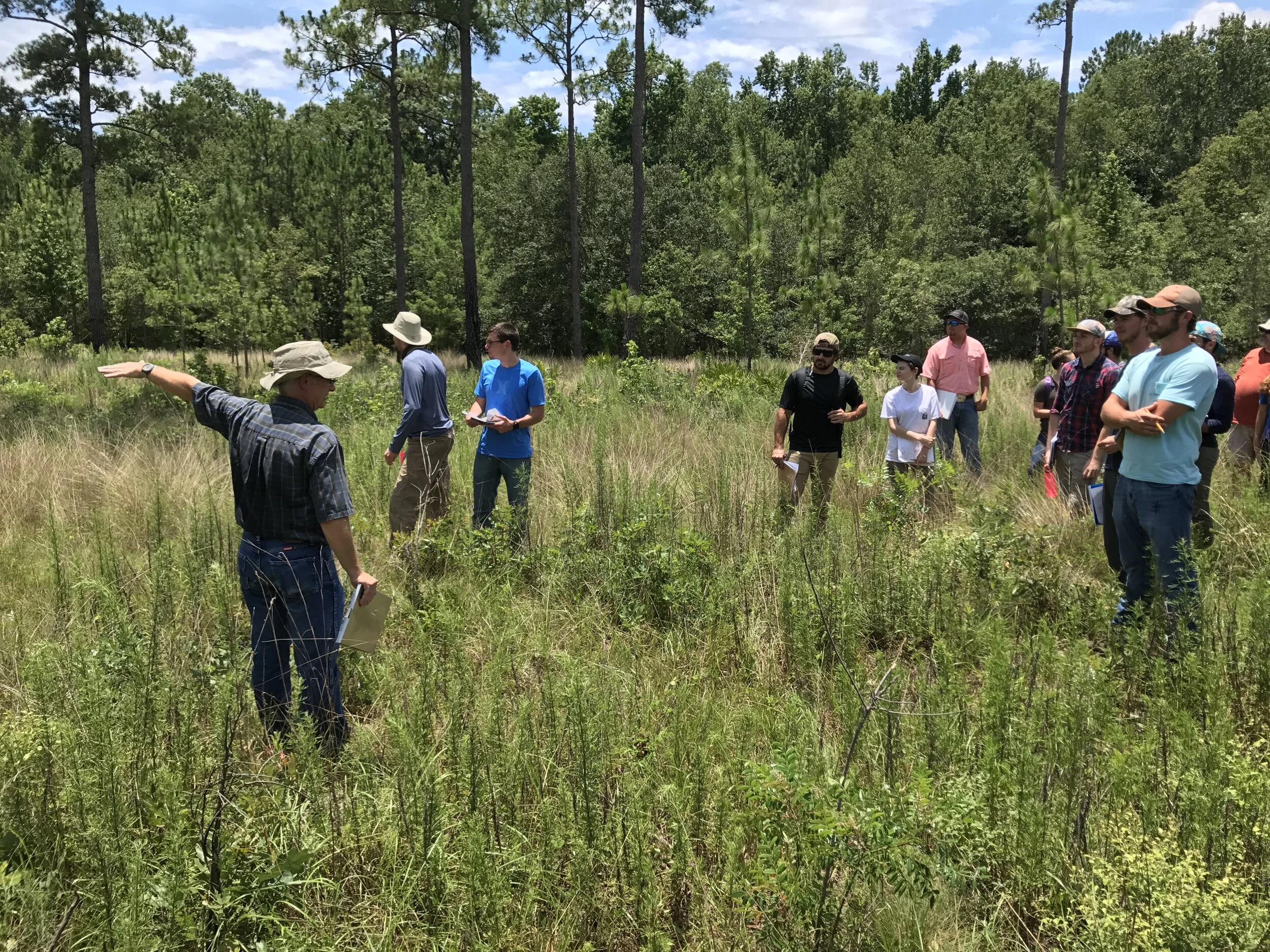
Teaching
-
FOR3200C: Foundations in Natural Resources and Conservation
Co-taught with Tim Martin, Ph.D.
This course is an overview of the history and fundamental concepts of natural resource conservation and management in the U.S. and world; will review the basic principles of forest biology, ecology, silviculture and natural resource management; will facilitate student interactions with natural resource professionals; and will introduce students to basic field, research, communications and computer skills that will be an integral part of the Forest Resources and Conservation and Natural Resource Conservation majors. Learning goals are to:
Connect with alumni and other professionals in the field of natural resources and conservation
Analyze your personality traits and relate them to professional development
Learn concepts important for success in other Forest, Fisheries, and Geomatic courses
-
FOR3214: Fire Ecology and Management
The basic objective of this course is to understand the principles, concepts, and issues surrounding fire, and to integrate this information into the context of natural resource management, protection, and stewardship. The learning goals are to:
Analyze fire as a physical process, including the chemistry and dynamics of fire
Understand fire as an ecological process, including effects on plants, animals, soil, water and air
Identify social and political forces that affect the use of fire, and how they can be incorporated into land management decisions
In the lab portion of this course, FOR3214L, students demonstrate the ability to safely participate in the execution of prescribed fires and have the opportunity to earn S130/190 certificates.
-
FAS5901: Scientific Thinking in Ecology
Co-taught with Carolina Baruzzi, Ph.D.
This course examines general philosophical foundations of science, the nature of scientific disputes, and the relevance of these to ecology. Assigned readings, class discussions and essays provide background, tools, opportunities and feedback designed to help students deliberately develop their professional philosophy. The course goals are to:
Foster critical thinking while developing each student’s scientific philosophy.
Enable students to recognize philosophical differences among scientists, particularly ecologists.
Help students place ecological science in the context of intellectual pursuits and human nature.
Make explicit for students the foundations of public trust in ecology as a science.
-

FOR6215: Fire Paradigms
Co-taught with Wendell Cropper, Ph.D.
This course focuses on an examination of paradigms related to wildland fire, whether biological, political, or social. Students will engage in in-depth reviews and syntheses of existing evidence for/against multiple paradigms. The theoretical basis, and ecological, policy, or management implications will also be investigated. All graduate students with an interest in fire ecology, and background in related coursework, are welcome.
At the end of this course, students will be able to:
Critically evaluate the ecological implications of fire management practices
Apply an in-depth understanding of fire ecology to fire research endeavors
Engage in critical examination of a variety of fire ecology approaches, subjects, and methodological applications
Demonstrate increased individual ability to utilize and/or improve upon existing fire ecology theory and/or models


